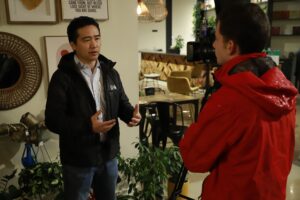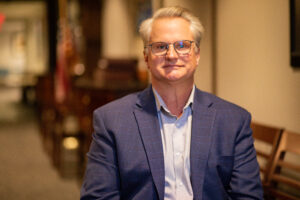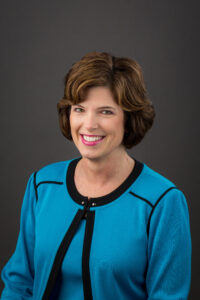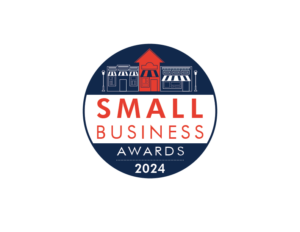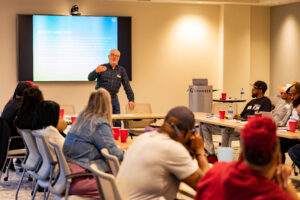Holly Ashley
About the Business: Temperate creates clothing for women that is hand sewn and made from sustainably sourced, natural and organic fabrics. The clothing is both stylish and comfortable, and meant to be worn from season to season, year after year.
Year Founded: 2013
Founder: Ongeleigh Underwood
Place Founded: Chattanooga
Number of Employees: One full-time and one part-time
Instagram: @temperateclothing
Email: [email protected]
Web: temperate.co
Q&A with Ongeleigh Underwood
Title: Owner/Designer
Hometown: Memphis, TN
Family: Brand new daughter
Biggest benefit of the INCubator: Convenience of locale and the outstanding support of the staff.
Where and how can people buy your clothing?
Online at Temperate.co or at any of our pop-up shops around town. You can sign up to receive event updates on our website at temperate.co or follow us on Instagram @temperateclothing.
Who are your biggest competitors and what differentiates your product from theirs?
My competitors range from big companies like J. Crew to small labels across the country like mine. It’s very competitive as it is a saturated market. People start fashion labels like they start restaurants and the fail rate is about the same; most fashion labels don’t make it past three years. So, keeping that in mind, I really try to differentiate my label through unique collaborations. For example, I work with a woman out of North Carolina who does hand block prints. She does all the carvings herself and hand printed some pieces in this latest collection for me. My materials sourcing is pretty unique too: I maintain total traceability. I source my natural and organic fabrics locally through middlemen who buy large quantities directly from regional mills in the Carolinas and Georgia. I also partner with Fibershed, a nonprofit dedicated to developing systems for restorative farming and processing techniques. One percent of Temperate profits goes back to Fibershed Southeast to build the regional fiber landscape.
You’re really passionate about sustainability. Where did that come from?
I participated in a program called Outward Bound when I was 16 years old, which was all about getting outdoors, learning to appreciate nature and finding yourself through the wild and unknown. I spent three weeks in the wilderness and it had a profound impact on my personal values, especially my ideals about consumption and how I viewed myself as a female. Then after two ambiguous years in college, I spent a year hiking and travelling in South America, which enhanced my perspective yet again. I moved to London afterwards to work for London Fashion Week as a marketing coordinator where I came to understand how high fashion operates. After that, I went back to school to study environmental science and worked in the sustainability field for a few years before I started Temperate. It took a little bit of time to get here – I’m 31 now – but that’s how it all happened.
It sounds like your message is bigger than just sustainability, that you’re also saying something about women and body image.
During those three weeks I spent in the wilderness as a 16-year-old, I realized I didn’t have to be like the girls in People Magazine. I didn’t have to be what the media showed me I should be: that I was supposed to have all this makeup and the perfect hair cut for my face shape. Those ideals all went away and the ideals that replaced them are reflected in Temperate. That our image does not define us, but it can enhance our overall beings when we learn to accept who we are and not give weight to what we are supposed to be. It is a confidence to be okay with who I am, and acknowledge that I accept and respect that person. Those things go hand-in-hand with the things you buy and the things you do.
Describe the typical Temperate client.
My girl is someone who likes putting herself together – and she does it well. She knows her body. She knows what she likes and she’s comfortable in her own skin. My client covets key pieces for her wardrobe and she wears them over and over again. She doesn’t have a cluttered closet full of clothes with hangtags still on them because she bought them on sale and never wore them. My client also wants to support something bigger in her everyday choices. Usually, it comes from just being a conscious person and really valuing the things you own. In fashion, that tends to trickle down to a desire to support independent designers and businesses like mine. The girl who chooses my clothes sees my styles first, then learns about the sourcing and all the sustainability and traceability that goes into making the clothes, and is finally like, ‘Awesome – I’m sold’.
What inspires your designs?
I design for myself. If I had gone to design school this would have been trained out of me because designing for yourself is taboo. I do it anyway because I think I’m like a lot of women in that I’m not a Barbie figure and I like comfortable clothes that are flattering, yet stylish. That’s what inspires me every time I think about designing a silhouette – style and ease.
What surprised you the most as a startup founder?
The biggest surprise was that the thing I loved the most: designing, ended up being a very small part of what I do every day. As a small, independent designer I actually have three things I have to be equally focused on: production, design and sales. Although designing is what gets me amped up and going, it only accounts for 5 or 10% of my time.
What’s your favorite thing about Chattanooga?
From a personal standpoint, the ease of living here is wonderful. I live out on a secluded mountainside side on 7 acres of land, yet I’m still able to get downtown in 20 minutes. You just don’t get that accessibility anywhere else that’s remotely affordable. From a business perspective, Chattanooga has a really supportive community. I participated in the Accelerator program through Co.Lab last year and that was wonderful. I made a lot of connections. They were very helpful and always extremely positive about everyone’s business. It made for a great introduction to the entrepreneurial community.
Any recommended reading?
On sustainability and product manufacturing: Cradle to Cradle – Rethinking the Way We Make Things by William McDonough and Michael Braungart
On female owned businesses: Girl Boss by Sophia Amoruso (founder of Nasty Gal)
For anyone thinking of starting a clothing line: Blue is the New Black by Susie Breuer
For falling asleep at night : The Condensed Paperback Collection of the Adventures of Sherlock Holmes

